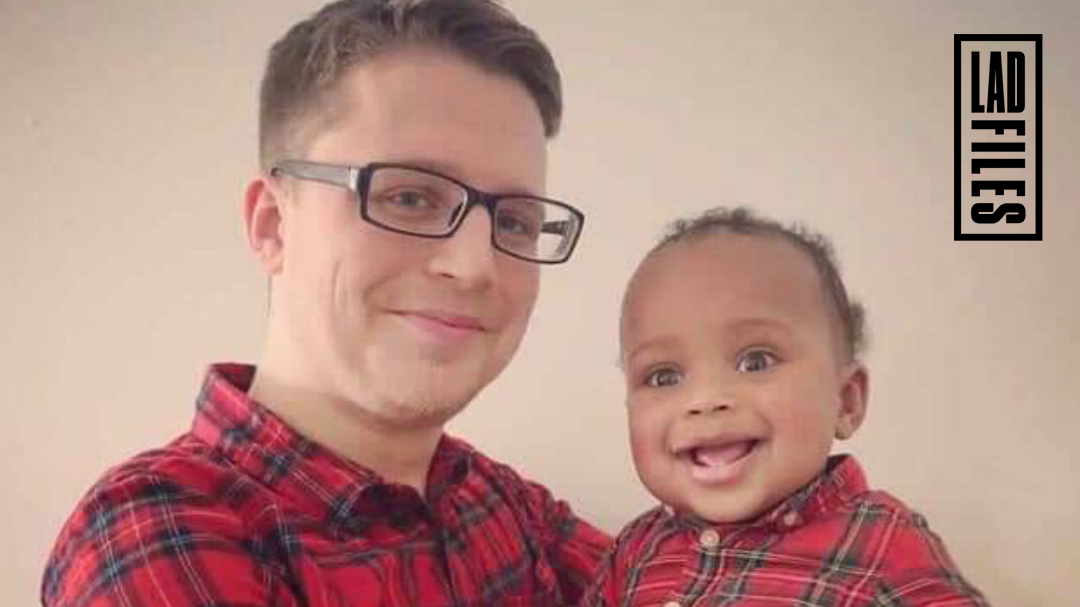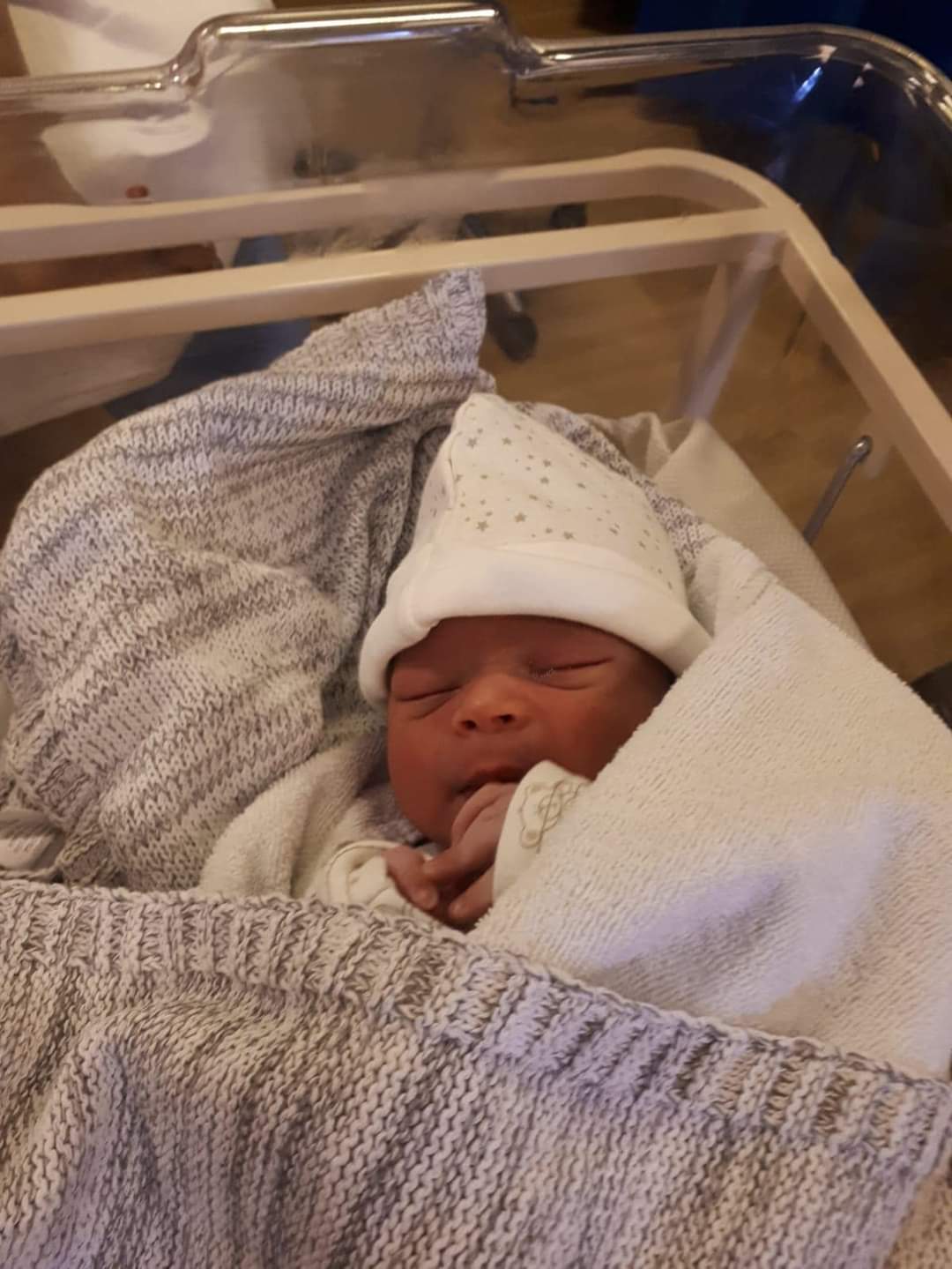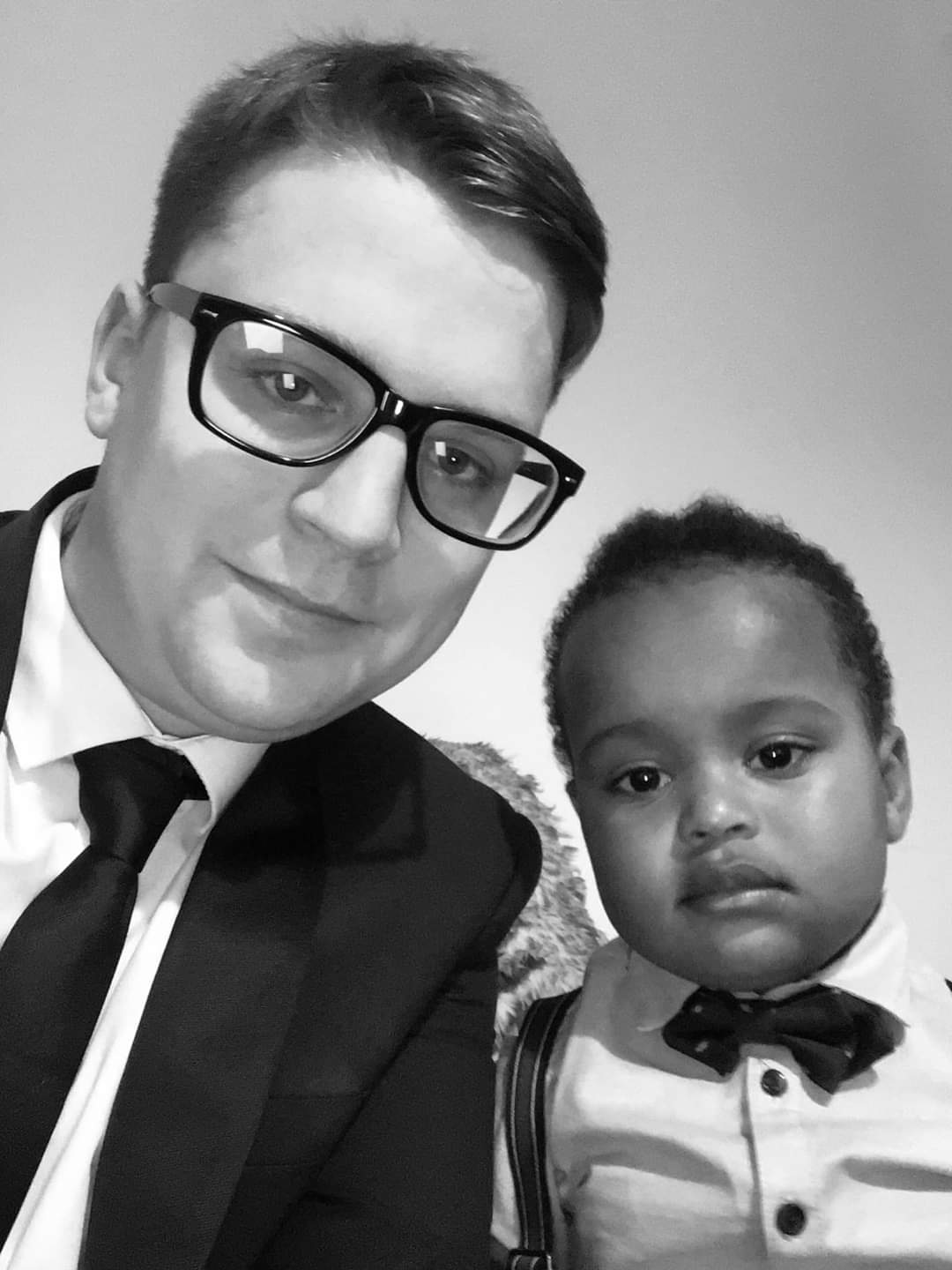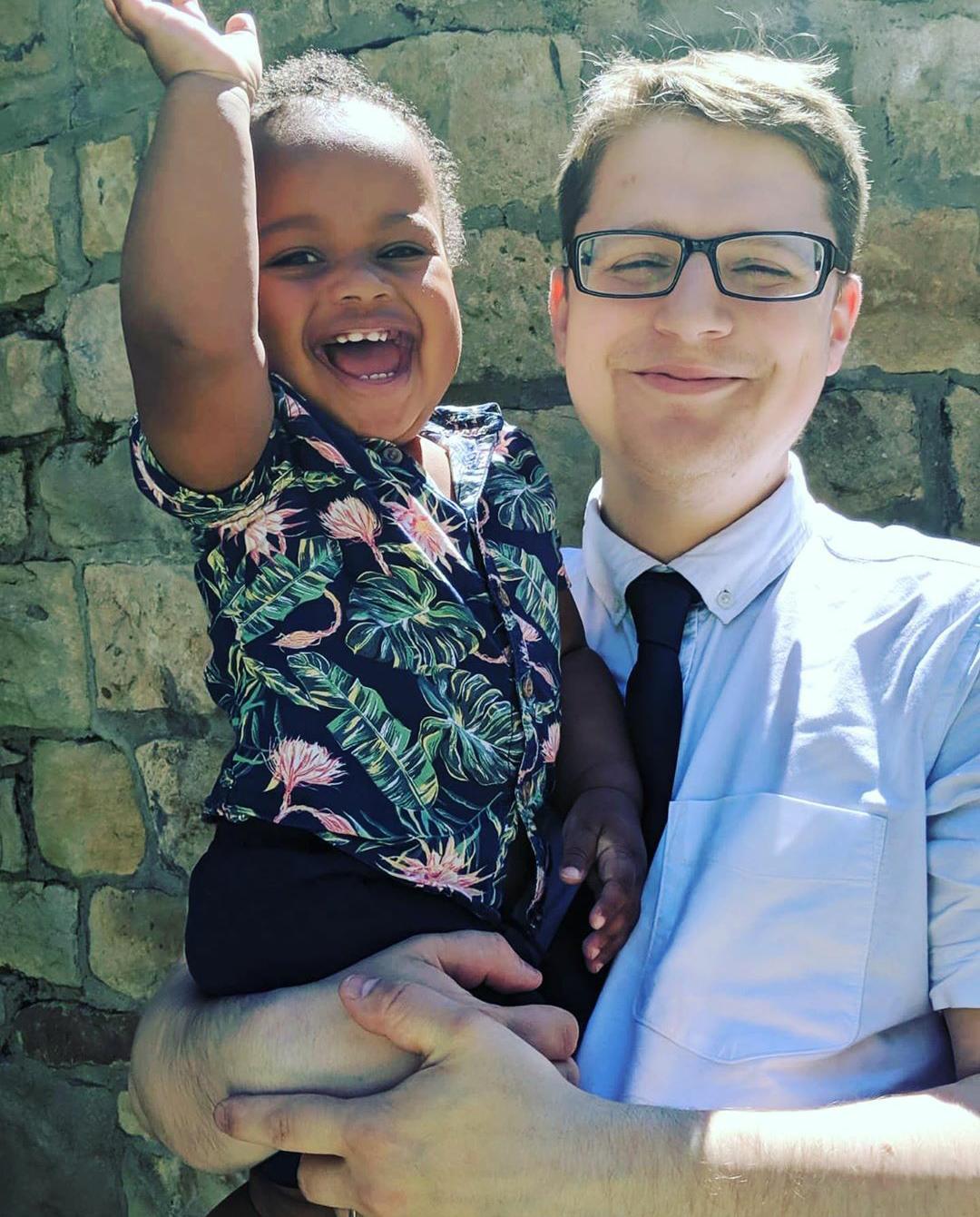
"I couldn't face being here any longer. I even considered taking my life."
Sunday marks the final day of Mental Health Awareness Week and today, we tell one man's story of how he was diagnosed, dealt with and overcame post natal depression - a condition that is largely associated with women, but which affects growing numbers of men.

When Joshua Brandwood's wife fell pregnant, he didn't experience the same feelings most hopeful parents do - or at least, the ones they admit to.
Advert
He didn't feel much enjoyment. Instead he felt cautious, anxious and apprehensive.
Joshua and his wife had lost their first child in 2017 and when they discovered they were expecting another, it was a bittersweet moment.
Speaking of their first pregnancy, Joshua told LADbible: "I started to feel more and more depressed and couldn't face being here any longer. I even considered taking my life.
"I refused to seek help. I didn't want to be a burden on my loved ones, especially my partner as she was battling with her own emotions. I worried that if I told my doctor I would be locked away.
Advert
"I thought I could make the thoughts disappear in time, but after a while it became clear that this wasn't going to happen."
Joshua and his wife both sought professional help to come to terms with their loss.

Some months after finding out they were expecting again and baby Noah was born. Joshua finally had the family he'd always dreamed of - a healthy partner and a new bundle of joy to nurture and care for.
Advert
Despite this, the new dad from Lancaster, UK, couldn't help but feel that he wasn't bonding with Noah. He said: "I often saw how great my friends were with their children and I didn't get the same thrill and enjoyment.
"I found it incredibly difficult to bond with Noah initially. I didn't want to cuddle him or show him any affection. I didn't feel normal.
"I was petrified of bonding with him because I felt that if I lost him, it would completely end me. I became a recluse and avoided interacting with anybody. I was only content when I was sleeping. I felt empty, as if I was merely existing."

After Joshua's wife quickly realised he was detaching himself from reality, she encouraged him to go and see his doctor who told him he had postpartum depression - a condition most people only relate to new mothers.
Advert
Joshua explained: "Before my diagnosis, I wasn't even aware men could get postpartum depression. However, the doctor explained that I was normal, before prescribing me antidepressants and counselling sessions."
This seems to be quite a theme. Recent research from Sweden shows a significant number of fathers struggled with their mental health during early parenthood over the past 10 years.
A study of 447 Swedish fathers found that 28 percent had symptoms scoring above mild levels of depression and four percent had moderate depression - but fewer than one in five fathers who were clinically depressed sought help.
Kate Marsh, a midwifery manager from the charity Tommy's said: "New dads can become depressed for many of the same reasons as new mums: extra responsibilities, lifestyle changes, financial pressures, relationship stresses, physical exhaustion.
Advert
"But it can be difficult for men to have the confidence to speak up about this because they often want to be the protector and keep things together for their families - even if that doesn't reflect what's going on inside.
"Tommy's want to highlight that it's okay to struggle, to show emotion, to talk about how you are feeling, Mental health is vital, so asking for help is not a sign of weakness but a sign of strength. If any fathers need advice or support, please do reach out."

Noah is now two years old and brings light into his parents' lives. Joshua concluded: "Noah and my wife offer my life a sense of purpose and without them, I don't know where I'd be. Since going through this experience, I'm much more open about my emotions with friends and family.
"I vowed to my wife that when I got better I would try and help others do the same by showing them paternal postpartum depression does happen and you shouldn't keep your feelings to yourself.
"In time, my wife and I would love more children, but there will always be a sense of anxiety after our first experience. I'm a firm believer that time is a great healer, so for now, we are enjoying our beautiful son grow.
"Parents should be looking after themselves as much as they look after their little ones each day."
**
While it is normal to feel tired and anxious as a new parent, this should not be confused with postnatal depression. Symptoms include:
- Anxiety and/or panic attacks
- Finding it difficult to make decisions
- Constant exhaustion or numbness
- Finding it difficult to sleep
- Lack of interest in your partner and/or baby
- Not wanting to do anything
- Being easily irritated
- Not wanting to eat or being unable to eat
- Binge eating
- Crying or wanting to cry more than usual
- Worrying that you don't love your baby enough
- Having thoughts about harming yourself or your baby
- Thinking about death
- Feeling sad and hopeless
- Feeling unable to cope
- Feeling guilty for not being happy or for not coping
Everyone is different so Tommy's recommends talking to your GP first, and exploring treatment options to find out what suits you best. Treatment for postnatal depression includes:
- Talking therapies and counselling
- Peer-to-peer groups e.g. Pandas Dads
- Cognitive behavioural therapy
- Personal support tools e.g. SMS4Dads
- Medication e.g. antidepressants
If you would like to watch a video Joshua made about his experience, click here.
Featured Image Credit: Joshua Brandwood